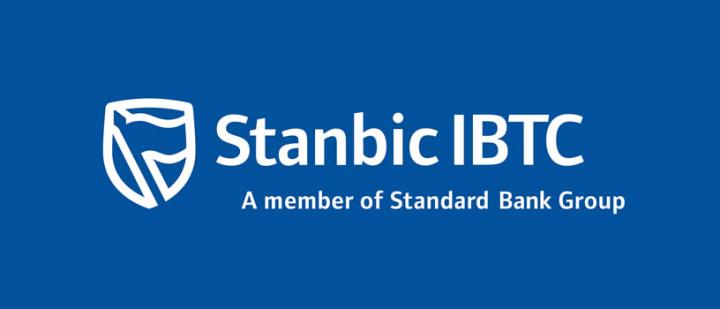Stanbic IBTC Holdings Plc, one of Nigeria’s leading financial institutions, has seen its share price maintain a steady position at ₦101 per unit amid fluctuating market conditions. The stability is seen by analysts and investors as a reflection of investor confidence in the company’s financial strength, operational consistency, and growth prospects.
As the Nigerian Exchange Limited (NGX) continues to witness a mixture of bullish and bearish trends driven by economic uncertainties, foreign exchange fluctuations, and rising inflation, Stanbic IBTC’s share price has remained resilient. While many banking stocks have seen notable price movements in response to sector-specific and macroeconomic developments, Stanbic IBTC has managed to defy the trend—holding firm at a time when many investors are recalibrating their portfolios.

Analysts attribute this stability to several factors. First, the company’s diversified revenue base has helped shield it from the impact of market volatility. With strong earnings from interest and non-interest income sources—such as wealth management, asset financing, pensions, and investment banking—Stanbic IBTC has managed to maintain stable cash flows and deliver consistent returns to shareholders.
The bank’s financial statements for the previous year showed robust profitability, with profit before tax increasing significantly. This performance has given institutional and retail investors a reason to hold on to their shares. Moreover, the group’s cost management strategy and disciplined lending approach have helped mitigate risks associated with the volatile interest rate environment in Nigeria.
Secondly, Stanbic IBTC’s leadership in digital banking and fintech innovation continues to attract investor attention. The bank has made substantial investments in digital infrastructure, improving customer experience and operational efficiency. This has not only reduced the cost of service delivery but has also expanded its reach among Nigeria’s growing young and tech-savvy population. The digital transformation, combined with a proactive approach to compliance and risk management, is seen as a strong indicator of long-term competitiveness.
The fact that Stanbic IBTC operates with strong corporate governance structures also plays a critical role in sustaining investor confidence. The bank is known for its transparency, timely disclosures, and adherence to ethical practices, making it a favourite among institutional investors, including pension funds and foreign portfolio managers.
While the ₦101 share price has remained unchanged in recent trading sessions, analysts view this level as a potential launchpad for future gains, especially if the company posts strong half-year results in the coming weeks. There is also optimism that the ongoing recapitalisation mandate by the Central Bank of Nigeria (CBN), which requires banks to increase their capital base, could favour well-capitalised institutions like Stanbic IBTC, potentially giving it a competitive edge in lending and expansion.
However, challenges remain. Nigeria’s broader economic landscape continues to weigh on investor sentiment. High inflation, tight monetary policy, naira depreciation, and rising operating costs have created a cautious atmosphere in the financial markets. For banks, the high-interest environment poses a double-edged sword: while it boosts interest income, it also increases the risk of loan defaults, especially among small and medium enterprises (SMEs).
Despite these concerns, Stanbic IBTC’s non-performing loan ratio remains relatively low, reflecting prudent credit risk policies. The bank’s strong capital adequacy ratio and liquidity levels suggest that it is well-prepared to absorb potential shocks in the near term.
Investor activity around Stanbic IBTC shares has been described as steady rather than speculative. According to market participants, most of the trades involving the stock are driven by long-term investment perspectives rather than short-term gains. The bank’s dividend payment history and capital appreciation potential are two key reasons investors are holding firm.
Looking ahead, stakeholders will be closely watching the bank’s next financial disclosures, expected soon. If the bank can maintain its earnings momentum and demonstrate resilience amid economic headwinds, the stock may experience upward movement in the third and fourth quarters of the year. Some analysts project a possible rally toward the ₦110–₦115 range if market conditions improve and investor appetite strengthens.
In conclusion, the stability of Stanbic IBTC’s share price at ₦101 is a testament to investor trust in the institution’s performance and governance. While the broader market remains volatile, the bank’s solid fundamentals, digital innovation, and sound financial health continue to provide a strong foundation for sustained shareholder value. As Nigeria navigates through economic reforms and financial sector adjustments, Stanbic IBTC is well-positioned to remain a leading player, not only in terms of market capitalisation but also in building long-term resilience in the banking industry.
Support InfoStride News' Credible Journalism: Only credible journalism can guarantee a fair, accountable and transparent society, including democracy and government. It involves a lot of efforts and money. We need your support. Click here to Donate
